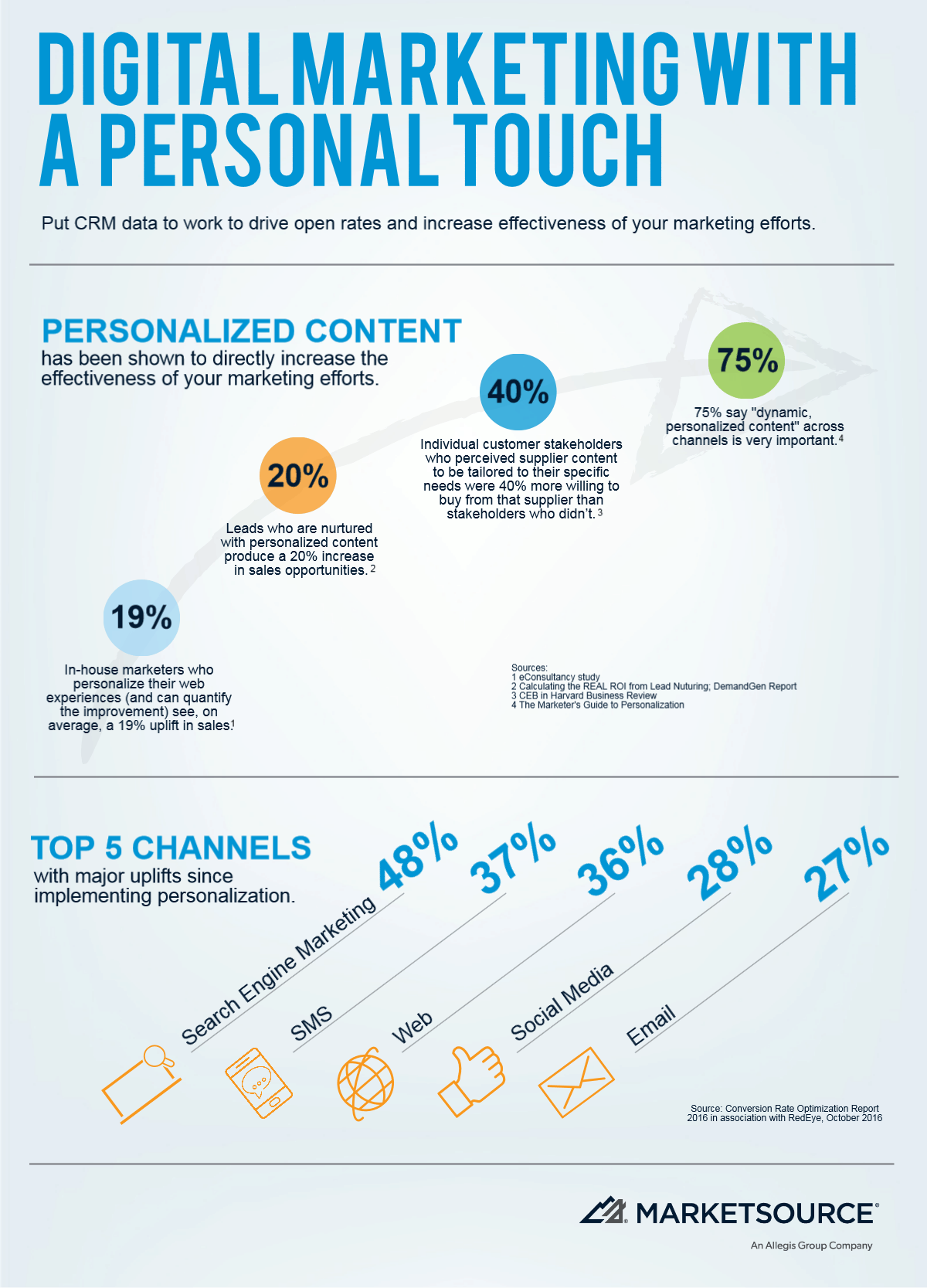Let me start by saying that the power of digital marketing cannot be refuted. It is more prevalent today than ever before, and if you’re not implementing some type of digital strategy (including social selling), you need to start heading down that path right away.
Now that we’ve gotten that out of the way, the importance of digital marketing paired with personalization or a personal touch is paramount. In a market where your competitors are just using technology and digital channels to recruit new prospects or clients, personal touch can be a differentiator—an extremely important differentiator. This is especially true when you want to create meaningful engagements, which have immediate impact. Implementing a digital strategy only, with no personal touch, can be a miss for businesses looking to have significant engagement with potential customers.

Again, I’m a firm believer in having a strong digital strategy. The analytics and insights that a digital strategy provide can create a data-driven roadmap to a buyers’ journey with your brand. The data points are imperative in both B2B or B2C sales and marketing and can show you exactly where and how these engagements occur. These insights can help craft meaningful digital experiences through multi-channel or omnichannel strategies. But, I’m a huge proponent of P2P or person-to-person marketing, because I’ve never seen a business make a decision about what to purchase or how to solve a problem—meaning there’s always a person behind the decision. These decisions come from executives or decision-makers who have a pain point or problem that needs to be solved or lack the in-house expertise.
One reason marketers don’t seek out these personal interactions is the inability to track and provide ROI on the engagement. Let’s face it, as marketers, this is what we’re judged by, and it’s the headache we face when not in a digital environment. These environments may include conferences, phone calls, in-person meetings, lunch appointments, etc. A real-life conversation with a potential client, or even a current customer, can provide a wealth of information valuable to a new opportunity. Although it’s difficult to provide ROI on these encounters, they can be extremely important.
According to a survey by Econsultancy of more than 1,100 digital and ecommerce professionals working for brands and agencies, 74% of marketers say targeted personalization increases customer engagement. These professionals use customer and prospect data (pain points, current solutions, objections to change, etc.) to segment their lists. Whether you’re promoting a blog, white paper, webinar, etc., you can customize your email campaigns based on this crucial data.
You might be thinking, “Personal interactions are great; but, with the amount of data needed to get personal with my messaging and strategy, I don’t have the time.” You have a good point there. This is why many companies invest in a customer relationship management (CRM) system. If the CRM system is updated with the latest information and data, you can really get personal with your marketing touches. Is there a segment who didn’t have budget, are at the beginning of their buyer’s journey, were waiting on change in their organization, etc.? With this knowledge, you can tailor the message to fit the prospect segment.
However, even if your company uses a CRM system, you can’t always trust sales to collect all the necessary data points and information needed for a complete profile (insert small rant here). Insufficient data can be a huge roadblock to not only personalizing your messaging, but for all marketing efforts. That’s why it’s so important for sales and marketing to align. Information is the gas that drives the machine, and moving sales toward that end is our job as marketers. Okay, rant over!
The bottom line is that it’s quite difficult to be successful in your marketing strategy without getting more personal. People are on information overload, and if they don’t believe you are truly trying to solve their problems, make their lives easier, or add value, then your marketing efforts are fruitless.
Find out how MarketSource can help through our assessment process or contact us now.

